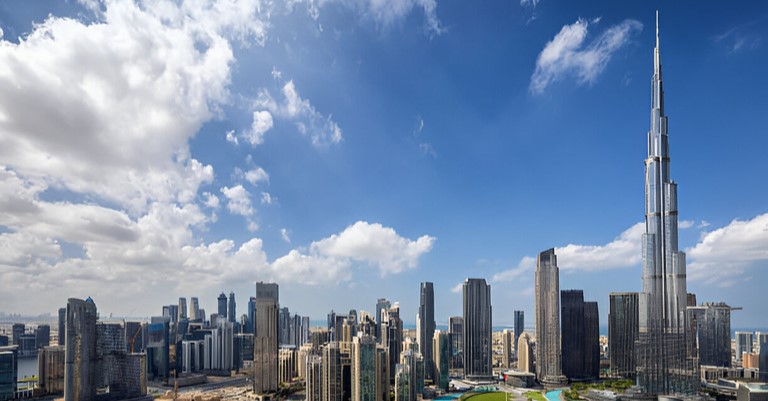ABU DHABI, 9th September, 2024 (WAM) — Abdulla bin Touq Al Marri, Minister of Economy, said that the preliminary estimates of the UAEs GDP growth in the Q1 2024, issued by the Federal Competitiveness and Statistics Centre (FCSC), underline the resilience and vitality of the national economy and exemplify its ability to continue on the path of sustainable growth.
He highlighted that the country’s real GDP reached AED430 billion in Q1 2024, recording a remarkable growth of 3.4 percent compared to the same period in 2023, while the non-oil GDP grew by 4 percent compared to the same period last year.
“Under the guidance of President His Highness Sheikh Mohamed bin Zayed Al Nahyan, and the directives of His Highness Sheikh Mohammed bin Rashid Al Maktoum, Vice President, Prime Minister and Ruler of Dubai, the country adopted an innovative economic model that supports its future vision, along with effective national economic strategies, enhancing openness to the world, promoting partnerships, and transitioning towards an economic model based on flexibility and innovation,” Bin Touq added.
He emphasised that the national economy’s positive results reinforce achieving the economic objectives of the “We the UAE 2031” vision, which includes raising the country’s GDP to AED3 trillion by the next decade.
Hanan Ahli, Managing Director of the Federal Competitiveness and Statistics Centre, said, “The financial and economic data and indicators endorsing the growth of the UAE’s GDP Q1 2024 reflect the resilience of the country’s vital economic sectors. It highlights the effectiveness of the concerted efforts to implement wise leadership’s directives to enhance sustainable economic diversification, reduce dependence on oil, promote investments, and attract capital and innovative and emerging projects to the country.”
She added that the UAE’s advanced rankings in multiple global economic competitiveness indicators can be attributed to several factors, including the stability of the financial system, the strength of the national economy, and the effectiveness of economic legislation and policies applied in the country, besides their ability to adapt to changes and face regional and global challenges.
Based on the data released by the Federal Competitiveness and Statistics Centre, financial and insurance activities have emerged as the leading non-oil economic sector contributing to the UAE’s GDP growth, with a remarkable growth of 7.9 percent. This growth can be attributed to the significant increase in the local credit granted to the private sector, which led to a six percent growth and positively impacted the rebound of non-oil economic activities.
Following closely behind in the second place are transportation and storage activities, which grew 7.3 percent. This growth was driven by a notable increase in the number of travellers at the country’s airports during the first three months of this year, reaching 36.5 million travellers, a growth rate of 14.7 percent compared to the same period last year.
The UAE’s ports have demonstrated exceptional performance during this time, with Dubai’s international ports witnessing a 3.7 percent growth in the number of containers handled, while Abu Dhabi’s ports experienced a 36 percent increase in cargo handling volume on an annual basis.
Ranking third, construction and building activities experienced a growth rate of 6.2 percent, which aligns with the several development projects initiated by the UAE government in early 2024. They saw a substantial rise in the government’s public capital expenditures, reaching AED4.8 billion, compared to that of Q1 2023.
The restaurant and hotel sector secured the fourth spot with a 4.6 percent growth during the first quarter of 2024 compared to the corresponding period in 2023. Moreover, the UAE emerged at the forefront of the global tourism landscape, attracting a substantial number of tourists from around the world.
In particular, Dubai witnessed a remarkable influx of 5.18 million international tourists, representing an 11 percent increase compared to the corresponding period in 2023. Abu Dhabi also maintained its exceptional performance in key tourism indicators, including the average hotel occupancy rates and revenue per available rooms.
Trade activities made the largest contribution to the non-oil GDP, accounting for 16.1 percent. Manufacturing activities come in second at 14.6 percent, with financial and insurance activities ranking third at a rate of 13.4 percent.
Construction and building activities contribute 11.8 percent, followed by real estate activities with a contribution of 7.1 percent.






